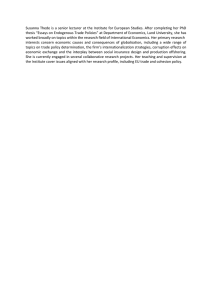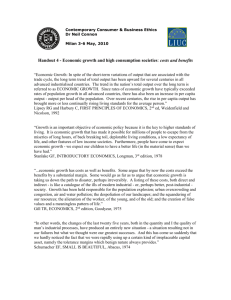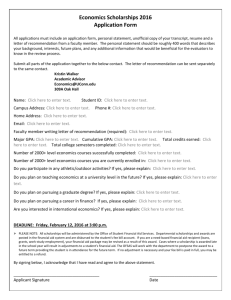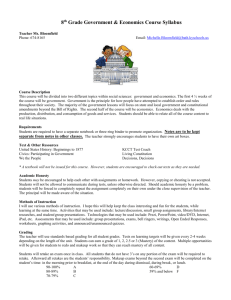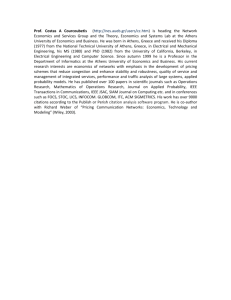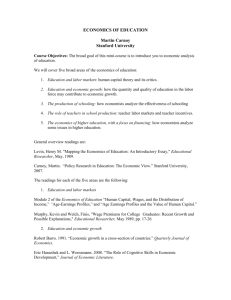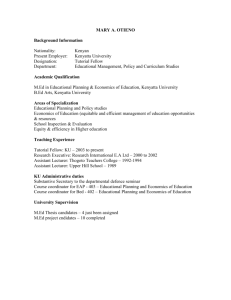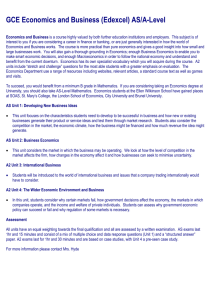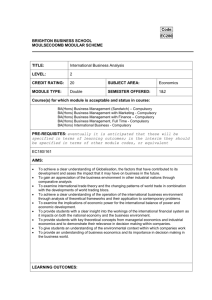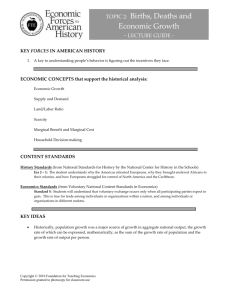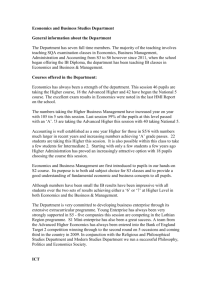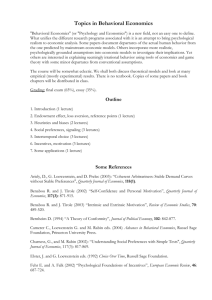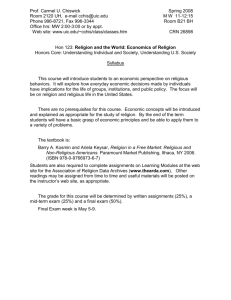Module Descriptor
advertisement
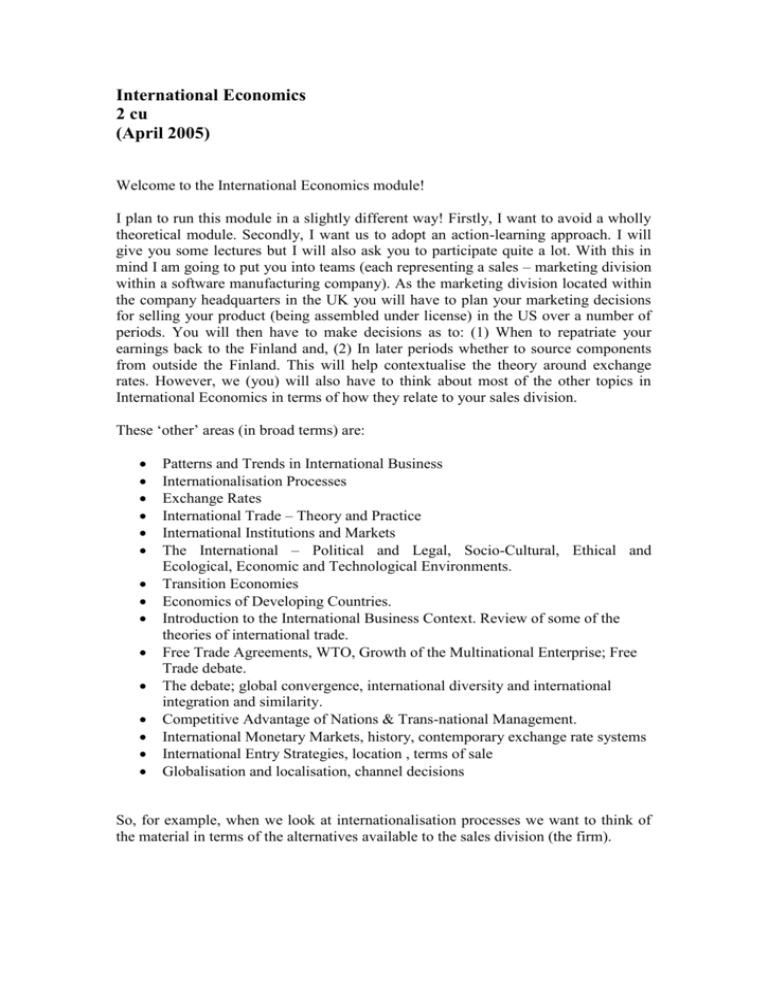
International Economics 2 cu (April 2005) Welcome to the International Economics module! I plan to run this module in a slightly different way! Firstly, I want to avoid a wholly theoretical module. Secondly, I want us to adopt an action-learning approach. I will give you some lectures but I will also ask you to participate quite a lot. With this in mind I am going to put you into teams (each representing a sales – marketing division within a software manufacturing company). As the marketing division located within the company headquarters in the UK you will have to plan your marketing decisions for selling your product (being assembled under license) in the US over a number of periods. You will then have to make decisions as to: (1) When to repatriate your earnings back to the Finland and, (2) In later periods whether to source components from outside the Finland. This will help contextualise the theory around exchange rates. However, we (you) will also have to think about most of the other topics in International Economics in terms of how they relate to your sales division. These ‘other’ areas (in broad terms) are: Patterns and Trends in International Business Internationalisation Processes Exchange Rates International Trade – Theory and Practice International Institutions and Markets The International – Political and Legal, Socio-Cultural, Ethical and Ecological, Economic and Technological Environments. Transition Economies Economics of Developing Countries. Introduction to the International Business Context. Review of some of the theories of international trade. Free Trade Agreements, WTO, Growth of the Multinational Enterprise; Free Trade debate. The debate; global convergence, international diversity and international integration and similarity. Competitive Advantage of Nations & Trans-national Management. International Monetary Markets, history, contemporary exchange rate systems International Entry Strategies, location , terms of sale Globalisation and localisation, channel decisions So, for example, when we look at internationalisation processes we want to think of the material in terms of the alternatives available to the sales division (the firm). Teaching Schedule We have about four hours per day over the two week period. In the first session I will look at the patterns and trends in International Business/Economy. I will also give you the background facts to the industry your sales division operates in and what is required. We will make one decision by the end of the day. The results of your decisions (come from a computer-based simulation) and you will be provided with these on the following morning. After the first teaching block (day one) you will have only one session per day to plan and make your decision. The rest of the time will be used either in lecture, tutorial or for you to research and prepare for class. Assessment There will be two pieces of assessment – each contributing 50% of the total marks available. The first assessed piece is a group report and presentation. The presentations will take place on the Thursday of the second week and last about 20 minutes. The report and presentation is required to address: The economic, moral and ethical arguments behind the objections to globalisation. Successful works will integrate theory and evidence and take a considered view on both sides of the argument. The report is required to be typed and is expected to be at least 3000 words in length. It is also required to conform to normal academic conventions regarding the acknowledgement of ideas/material. Finally, it is to be written in your (the group’s) own words. For the presentation the group required to have powerpoint prepared OHP slides. The second assessed element is a time-constrained test. This test will require you to answer three questions from a choice in two hours. The test date will be confirmed in the first week. Key Reading You can reference pretty much the same material from most of the text books labelled ‘International Economics’ or from some basic economic texts such as Economics by Begg, Fischer and Dornbusch or Applied Economics edited by Griffiths and Wall. Other useful books are those labelled ‘International Business’. Rulzion Rattray April 2005
